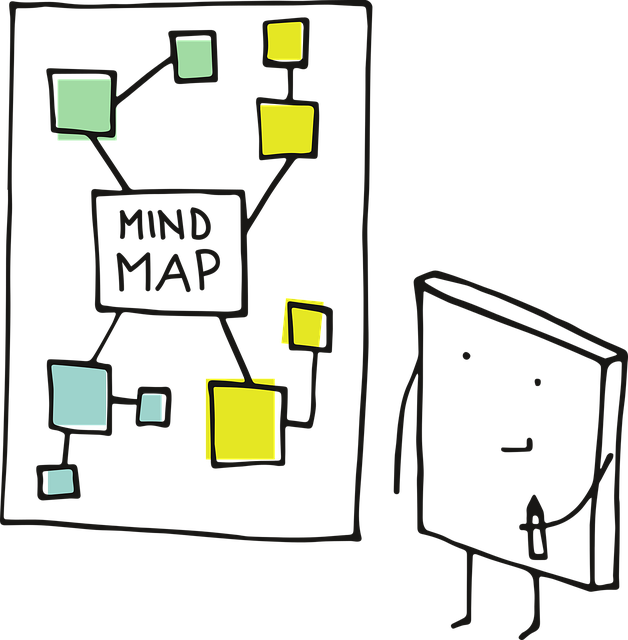For international scholars researching in the UK, UK Academic Journals Translation Services are vital for overcoming language barriers. These services provide precise translations of academic journals, enabling global researchers to engage with scholarly discourse, foster collaborations, and contribute to knowledge advancement. By offering linguists skilled in both source languages and academic fields, these services ensure cultural sensitivity and terminological accuracy. With the rise of open-access publishing and international research partnerships, professional translation is crucial for maintaining quality, preserving original intent, and fostering inclusivity within the global academic community. Emerging technologies like Machine Translation are further enhancing accessibility and efficiency in this space.
International scholars navigating complex academic landscapes face a significant challenge: understanding research published in diverse languages. This article explores the crucial role of translation services in breaking down language barriers, with a focus on UK academic journals. We delve into the intricacies of accurate translation, its impact on scholarly exchange, and provide practical guidance on selecting reliable companies. From cultural nuances to emerging technologies, this comprehensive guide illuminates the future of translation in higher education, enhancing global collaboration.
- Understanding the Significance of Accurate Translation for International Scholars
- Navigating UK Academic Journals' Language Barriers: A Scholar's Perspective
- The Role of Professional Translation Services in Higher Education
- Ensuring Quality: Criteria for Selecting Reliable Translation Companies
- Cultural Nuances and Terminology: Challenges in Academic Translation
- Best Practices for Effective Communication in International Research Collaborations
- Legal and Ethical Considerations in Academic Translation: What Scholars Should Know
- Accessing Resources: Online Platforms and Tools for Language Support
- Case Studies: Successful Translations that Enhanced International Scholarly Exchange
- The Future of Translation Services: Emerging Technologies and Their Impact
Understanding the Significance of Accurate Translation for International Scholars

For international scholars navigating the intricacies of academic research in a new language, accurate translation services become an indispensable tool. The UK, with its rich academic landscape and diverse scholarly community, offers a vast array of resources through academic journals written in English and other languages. However, accessing and understanding this knowledge is only possible when these works are translated into their native tongue. This is where professional translation services step in as a game-changer, ensuring that scholars can fully immerse themselves in the academic discourse and contribute meaningfully to their fields.
Accurate translation goes beyond mere word-for-word substitution. It involves capturing the nuances, cultural references, and scholarly jargon of the source language while conveying it coherently in the target language. UK Academic Journals Translation Services specialize in providing this level of precision, enabling international scholars to bridge the communication gap and engage with academic literature from around the globe. This accessibility fosters a vibrant exchange of ideas, enhances collaboration, and ultimately contributes to the advancement of knowledge across borders.
Navigating UK Academic Journals' Language Barriers: A Scholar's Perspective

Navigating UK academic journals’ language barriers can pose significant challenges for international scholars. With a vast array of specialized terminology and complex writing styles, understanding research publications becomes an uphill task. Many journals, despite their global reach, primarily operate in English, leaving non-native speakers to grapple with interpreting intricate concepts and nuances. This is where translation services step in as a vital resource.
UK academic journal translation services offer a solution by providing professional translators who are not only proficient in the source language but also possess expertise in the relevant academic field. These services ensure that research findings are accessible, promoting inclusivity and enabling scholars from diverse linguistic backgrounds to contribute to and benefit from the UK’s scholarly landscape.
The Role of Professional Translation Services in Higher Education

In today’s globalised academic landscape, where research and knowledge exchange transcend geographical boundaries, professional translation services play a pivotal role in higher education. These services are instrumental in facilitating communication between international scholars and UK academic institutions, ensuring that valuable research findings and scholarly works can be accessed and understood by a diverse audience worldwide. With the rise of open-access publishing and international collaborations, the demand for accurate and culturally sensitive translations has never been more critical.
UK academic journals translation services have become indispensable tools in bridging the language gap, enabling researchers from different linguistic backgrounds to contribute their expertise to the scholarly discourse. Professional translators, well-versed in both the source and target languages, can convey complex scientific concepts and intricate academic terminology with precision. This not only enhances the accessibility of research but also fosters a more inclusive academic community, encouraging knowledge exchange and collaboration on an international scale.
Ensuring Quality: Criteria for Selecting Reliable Translation Companies

When it comes to translating research for international scholars, ensuring quality is paramount. The accuracy and cultural relevance of translations directly impact the understanding and acceptance of academic work. To safeguard integrity, it’s crucial to select reliable translation companies that meet stringent criteria. Look for firms with experienced linguists who possess expertise in your field, specifically those familiar with UK academic writing styles and terminology found in journals.
Reputation is another vital indicator. Reputable translation services in the UK, often listed in top academic journal directories, have established track records and client testimonials. They adhere to quality assurance processes, including peer review and proofreading, guaranteeing precise and natural-sounding translations that meet international standards.
Cultural Nuances and Terminology: Challenges in Academic Translation

Navigating academic translation, especially for international scholars contributing to UK academic journals, involves a complex dance between cultural nuances and terminological accuracy. The challenge lies in the fact that ideas and concepts are not just linguistic entities but are deeply rooted in specific cultural contexts. What seems straightforward in one language may not translate seamlessly to another due to varying conceptual frameworks and even literal interpretations. For instance, a term that carries a particular emotional weight or a nuanced social reference in one culture might lack an equivalent expression or carry a different meaning entirely in another.
Professional translation services specializing in UK academic journals must therefore employ linguists who understand these cultural nuances. This involves not just a command of both source and target languages but also a deep knowledge of the scholarly disciplines they serve. Such experts can help bridge the gap between cultures, ensuring that academic texts convey their original intent and meaning accurately, fostering effective communication and mutual understanding among international scholars in the UK academic community.
Best Practices for Effective Communication in International Research Collaborations

In international research collaborations, effective communication is paramount. Scholars from diverse linguistic backgrounds must navigate complex discussions and documentation to ensure their ideas are conveyed accurately and misunderstandings are minimised. Utilising UK Academic Journals Translation Services can significantly enhance collaboration by providing professional translators who understand academic language nuances and specific terminologies. This ensures that all participants can engage fully in research activities, fostering a productive and inclusive environment.
Best practices for effective communication include clear and consistent use of language, regular virtual meetings to discuss progress and any conceptual differences, and maintaining open lines of communication throughout the research process. Additionally, employing translation services that offer not just word-for-word rendering but also cultural adaptation is crucial. This involves translating ideas while preserving their original intent and ensuring they resonate culturally with all stakeholders, promoting a deeper understanding and stronger collaboration among international partners.
Legal and Ethical Considerations in Academic Translation: What Scholars Should Know

When translating research for international audiences, scholars must navigate complex legal and ethical landscapes to ensure their work is accurately represented. In the UK, academic translation services often adhere to strict guidelines set by professional bodies and regulatory agencies, particularly when dealing with sensitive topics or proprietary information. Scholars should be aware of intellectual property rights, copyright laws, and data protection regulations that may impact the translation process.
Ethical considerations are equally vital. Translators must maintain the integrity of the original research, preserving its methodology, findings, and conclusions. Transparency is key; scholars should be informed about any changes made during translation to ensure their understanding and approval. UK academic journals often require translated articles to include a disclaimer or acknowledgement of the translation process, highlighting potential variations from the original text.
Accessing Resources: Online Platforms and Tools for Language Support

Accessing Resources: Online Platforms and Tools for Language Support
In today’s global academic landscape, international scholars often need to navigate complex linguistic barriers when exploring UK academic journals or engaging with research from diverse linguistic backgrounds. Fortunately, a plethora of online platforms and tools have emerged to provide essential language support. These digital resources offer a convenient and accessible way for researchers to bridge the gap between languages and disciplines. From translation services to language learning apps, these tools empower scholars to access and contribute to academic discourse seamlessly.
One notable aspect is the availability of specialized UK academic journal translation services that cater specifically to the needs of international readers. These services ensure accurate and contextually appropriate translations, facilitating a deeper understanding of scholarly works. Additionally, many online platforms incorporate advanced machine translation algorithms, enabling researchers to quickly access preliminary translations and refine their research focus. By leveraging these modern tools, scholars can efficiently navigate academic resources, fostering a more inclusive and diverse research environment.
Case Studies: Successful Translations that Enhanced International Scholarly Exchange

In the realm of international scholarly exchange, effective translation plays a pivotal role in bridging communication gaps. Case studies highlighting successful translations have showcased their potential to enhance collaboration and knowledge dissemination among researchers from diverse linguistic backgrounds. For instance, UK academic journals have leveraged professional translation services to make their research accessible to global audiences. By employing native-speaking translators with expertise in specific academic fields, these journals ensure the accuracy and fluency of translated articles, fostering a vibrant exchange of ideas.
One notable example involves a groundbreaking study on environmental science published in a renowned UK journal. The meticulous translation process not only conveyed the intricate research findings but also preserved the original author’s intent and tone. This successful translation opened doors for international collaboration, leading to further cross-cultural research projects and strengthening the global scholarly community. Such cases underscore the significance of high-quality translation services in facilitating meaningful academic discourse across borders.
The Future of Translation Services: Emerging Technologies and Their Impact

The future of translation services is being reshaped by emerging technologies, offering unprecedented possibilities for accuracy and efficiency in UK academic journals and beyond. Machine Translation (MT) platforms have made significant strides, leveraging neural networks to produce more natural and contextually appropriate translations. These tools are becoming increasingly accessible, allowing scholars from diverse linguistic backgrounds to access research more readily.
As technology advances, we can expect translation services to become even more integrated into the academic landscape. Artificial Intelligence (AI) and Machine Learning algorithms will likely enhance post-editing processes, enabling translators to focus on nuance and cultural adaptation. This evolution promises to streamline communication, fostering a more inclusive global scholarly community in the UK and internationally.
In navigating the complex landscape of academic communication, understanding the significance of accurate translation for international scholars is paramount. The article has explored various aspects crucial to enhancing scholarly exchange, from overcoming language barriers in UK academic journals to leveraging professional translation services and addressing cultural nuances. By adhering to best practices, selecting reliable companies based on quality criteria, and considering legal and ethical aspects, researchers can ensure effective communication in international collaborations. Emerging technologies promise to revolutionize translation services, further fostering a global academic community. This holistic approach ensures that scholarly insights transcend linguistic boundaries, enriching the tapestry of global knowledge.
